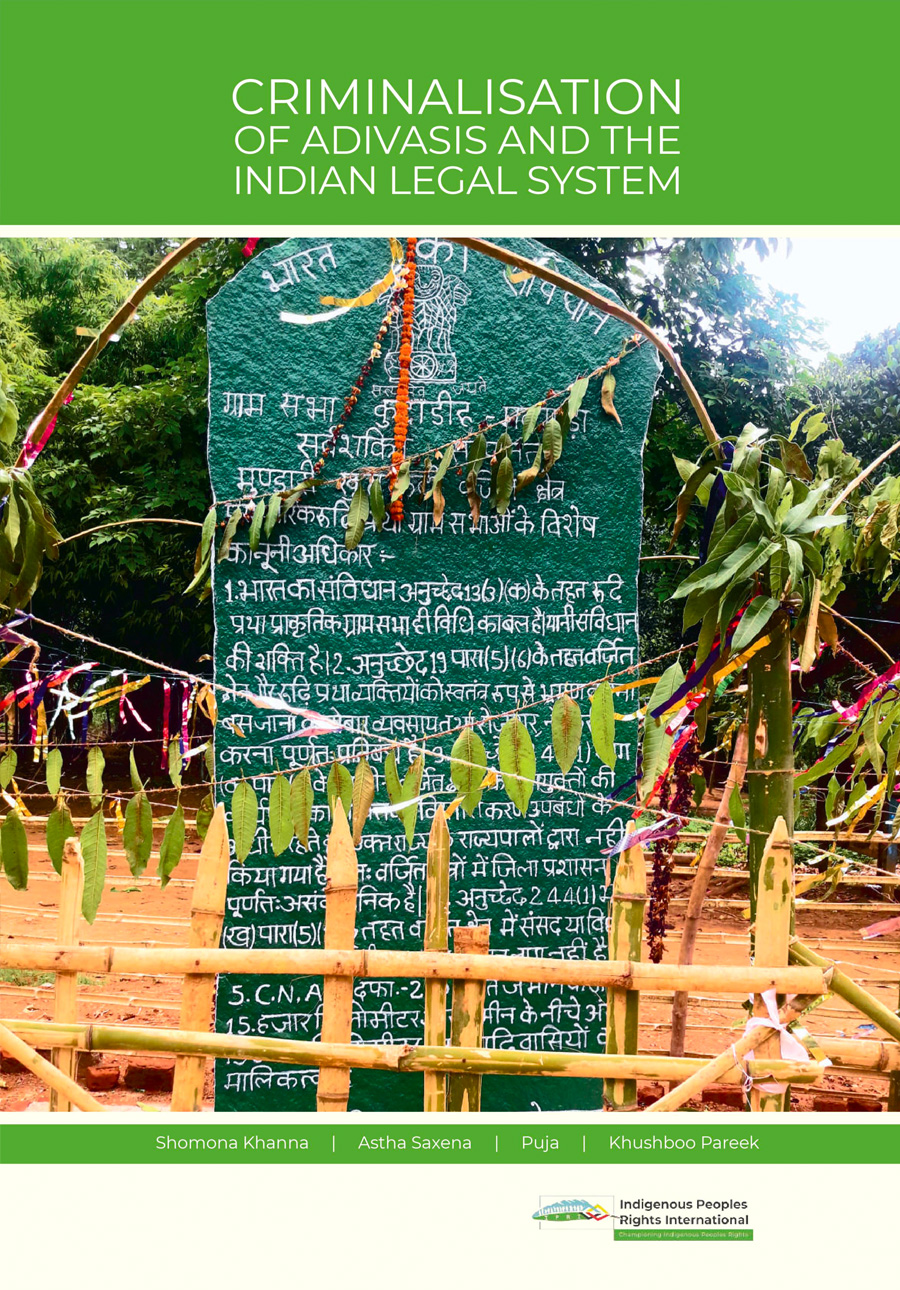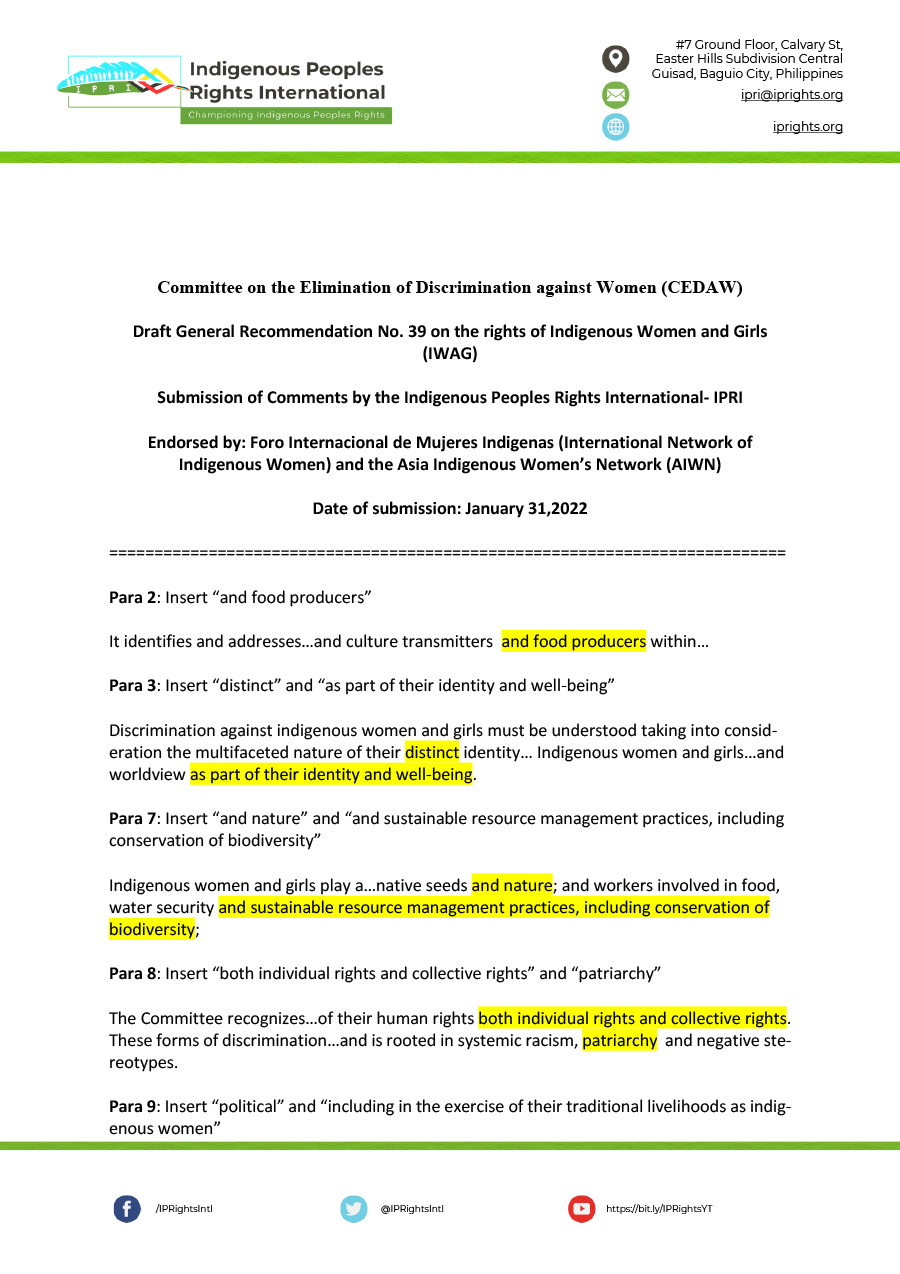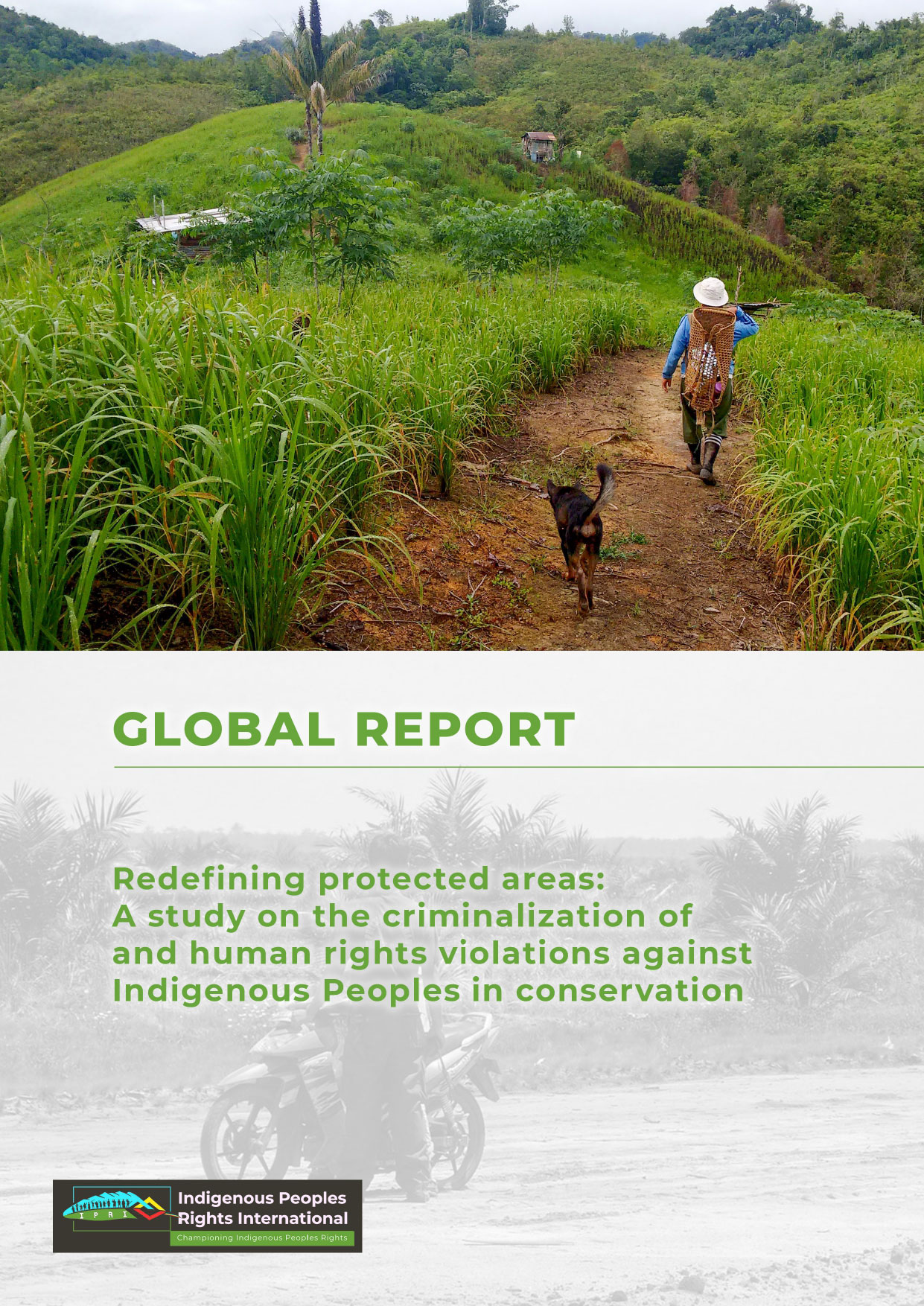As part of its work in highlighting and monitoring incidents of criminalisation, violence, and impunity against Indigenous Peoples, Indigenous Peoples Rights International (IPRI) commissioned a research examining the dimensions of criminalisation of Adivasis in India.
Written by Shomona Khanna, Astha Saxena, Puja, and Khushboo Pareek, the book, Criminalisation of Adivasis and the Indian Legal System, provides a 360-degree view on criminalisation of Adivasis. The authors embarked on the daunting task of tracing the origins of criminalisation of Adivasis as it links to discrimination and the colonial forest laws that continue to threaten them and their way of life until today.
A first of its kind, this study provides a firm foundation to kickstart future engagements and inquiries on this critical issue relating to the rights and well-being of Indigenous Peoples in India. We hope that this publication will play a part in inspiring Indigenous Peoples’ movements in India and beyond to strengthen their ongoing initiatives to protect their rights through engaging with the legal system. We also hope that it will be a useful resource material for policymakers and advocates to have deeper awareness on the importance of strengthening protection of Adivasis through a more comprehensive and efficient legal and justice systems.
IPRI, in partnership with Business and Human Rights Resource Center, PRODESC, Frontline Defenders and the ALLIED coalition, produced a policy brief: ‘‘Hearing the human: Ensuring meaningful due diligence legislation effectively amplifies the voices of those affected by irresponsible business’. The full policy brief is available in English and Spanish.
It makes the case that genuine due diligence depends on meaningful stakeholder engagement, which in turn must address retaliation risks and attacks on rights-holders and HRDs, as well as limitations to their civic freedoms. The goal of this briefing is to push for inclusion of this angle in the legislative text on EU’s Sustainable Corporate Governance Initiative, including mandatory human rights and environmental due diligence (mHREDD), to be adopted by the EU later in 2021.
(Feature image from PRODESC)
- Findings and Recommendations: Redefining Protected Areas
- TANZANIA || Criminalization of, and human rights violations against Indigenous Peoples in conservation: a country report
- KENYA || Indigenous defenders on the run: a country study on the criminalization of and human rights violation against Indigenous Peoples in conservation
- DRC || Governance and management of protected areas: A country report on the criminalization of, and human rights violations against Indigenous Pygmy Peoples






